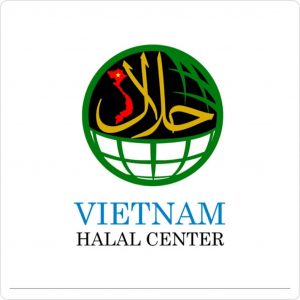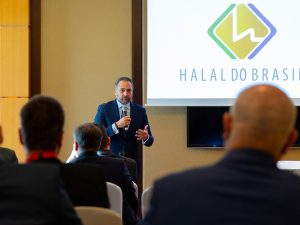THE consistently large numbers of local and foreign delegates
attending the annual Malaysia International Halal Showcase (Mihas) and
the World Halal Forum in recent years reflect growing interest in the
global halal market and increased awareness of halal products.
There is no doubt that Malaysia, which boasts the best halal certification and systems, would get a big share of the global halal industry estimated to be worth US$580bil should local companies succeed in tapping the overseas markets.
 An
Anemployee cleaning a glass door at a fast-food outlet that serves halal
food. The Government hopes to shorten the approval time for halal
certification to 30 days.
The Government has, via its agencies, organised halal-related
events to facilitate local companies, the majority of which are small
and medium enterprises (SMEs), to help expand their business networks.
Mihas and the World Halal Forum, besides providing the avenue for local and foreign participants to offer halal-related services, also aim to attract foreign investments into the country through joint ventures and partnerships.
The
ongoing 5th Mihas, organised by Malaysia External Trade Development
Corp, has attracted 108 exhibitors from 35 countries. There are 508
exhibitors and all 622 booths have been taken up.
For the World Halal Forum to be held from May 12-13, there will be at least 1,000 participants from 50 countries.
Besides workshops and business networking sessions, forum organiser KasehDia Sdn Bhd will also arrange site visits to the halal hub in Port Klang, Selangor.
Despite the huge opportunities, the challenge for local companies is to be able to identify and cater to global markets.
How established is the Malaysian halal logo and certification compared with other countries and can the certification help boost sales?
Local halal product manufacturers, mainly SMEs, told StarBiz that halal certification is an added advantage in exporting their products.
Nevertheless, some obstacles hinder the development of the industry.
Adabi Consumer Industries Sdn Bhd
managing director Datuk Syed Manshor Syed Mahmood said: “We are keen to
expand the export market and are open to every possibilities, including
joint ventures with overseas companies.
“Partnerships will, to a certain extent, help provide us the necessary competence and skills to manufacture.”
However,
Syed Manshor said outside the Middle East and the former Russian Muslim
countries, the Muslim market was fragmented. In Europe, Australia, the
US and South America, the Muslim population is small and scattered,
making the reach virtually impossible.
The company also
discovered another obstacle recently. Adabi used to export its noodles
on contract basis to a Middle Eastern country. However, the buyer has
now switched to China-made noodles because of the lower price.
Syed Manshor stressed that having the halal logo alone does not guarantee sales.
“What
needs to be followed through is the quality, meeting each country’s
requirements like health certificates, legal issues, packaging and
technological aspects, pricing and more importantly, taste,” he said.
Unza (M) Sdn Bhd marketing general manager Francis Ng feels the authorities should hasten the approval and renewal for halal certification as the current three to six months is a little “too long”.
He noted that delays in approval could slow down production.
Recently, Jabatan Kemajuan Islam Malaysia handed over the halal
logo certification authority to Halal Industry Development Corp (HDC).
The Government also hopes to shorten the time to approve an application
to 30 days.
“It is a good move and will certainly benefit manufacturers; local players can now be more efficient in production,” Ng said.
Meanwhile, Three-A Resources Bhd executive director Fong Chu King said halal certification gave the food and beverage ingredients producer an edge in penetrating countries that require halal certification.
To help improve the production of local halal products, the Government should consider offering tax incentives and exemptions as well as low interest loans, he added.
Wong Yoon Bing, managing director of sweet corn grower and supplier Marine Gold Marketing Sdn Bhd, said Malaysia’s halal
certification was an “extraordinary” branding for local products to
compete with exports from India, China, Indonesia and Thailand in
foreign markets.
However, he is concerned over the several months taken to renew halal certification.
“We hope HDC can speed up the renewal of halal certification so that we can deliver products to customers on time.”



